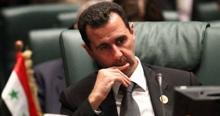
I make no claim to cover China’s problems completely in this article. Nevertheless, the issues I discuss allow us to draw some conclusions and better understand China’s prospects for the near future.
China’s main problem can be described in one word — the “West,” or more precisely, the United States and the European Union. Because the EU is militarily and politically subordinate to Washington, many of China’s problems derive from White House strategy. Unfortunately, Western colonial policy is not a thing of the past; it has only taken on different forms and uses different tools.
But what is preventing the governments of China and the United States from transitioning from their very restrained and at times hostile relations to a warm and cordial relationship, especially since the two countries depend highly on economic cooperation with one another?
Some influential American politicians are in favor of radically improving Sino-US relations. Henry Kissinger, for example, told the London-based The Independent newspaper that the future world order will depend on the nature of US engagement with China and suggested that a new generation of American politicians build relations with the PRC based on a sense of common destiny, as transatlantic cooperation was built after World War II. The Obama administration suggested to China’s leaders not long ago that they share responsibility for maintaining the world order and proposed forming a G2. Why have relations between the two great powers not gelled? The answer is simple.
The American government acknowledges only one great country— the United States. According to General Wang Haiyun, China’s former military attaché to Russia, the United States acts unilaterally in international politics. The clashes of interests and disputes between the United States and China will continue for a very long time. Therefore, it is unrealistic to say that China and America can run the world jointly. China is not going to weaken its ties with its strategic partners or with a number of developing countries.
If the United States wanted to become China’s strategic partner, it would not have supplied arms to Taiwan or supported Tibetan separatists.
It cannot be said that China fails to benefit from its cooperation with the West. So long as the EU and the United States issue currency that (for now) is eagerly accepted throughout the world, trade with them is very lucrative. The problem is that the current financial condition of Western countries is far from stable, and there is no guarantee that their governments will be able to balance their budgets. Even if they should manage to balance their budgets, however, that would threaten to reduce the purchasing power of people in Europe and the United States, and Chinese exports would therefore decrease significantly.
A drop in the purchasing power of people in Western countries would bring Russia’s oil and gas sales to Europe into question. Thus, the emerging global economic situation is pushing Beijing and Moscow into each other’s arms. China requires ever-increasing amounts of energy — Russia’s main export commodity.
Diversifying export markets and the routes and sources of raw materials may become key to Beijing’s political and economic strategy.
It costs less to ship by sea than by rail. However, that does not mean the railroads connecting East Asia and Europe have no future. A New Silk Road is a practical concept, but not without Russian involvement. An attempt to bypass Russia would clearly fail. In addition, Beijing would actively seek out new markets for its products, something it is already doing on principle.
Speaking last year at a national conference on imports and exports, Chinese Vice Minister of Commerce Zhong Shan said China is highly dependent on trade with Europe and the United States, and its trade with developing countries is small in scope. He said that in the future China will give priority to approximately 30 emerging market countries, particularly India, South Africa, some Arab countries and countries that are rich in resources and occupy an important strategic location in the world.
Chinese industry today is developing rapidly, and its population is becoming more urbanized. China’s needs for energy and raw materials are growing. Therefore, it would be a good idea for Chinese companies to get involved in the economic development of Russia’s Far East and Siberia, as well as joint space projects and nuclear power plant construction.
Strengthening military-technical cooperation with Russia may also play an important role in enhancing China’s security. This past summer, the EU government made it clear to Beijing that transferring any advanced Western military technologies to China in exchange for financial aid is out of the question. It is abundantly clear that NATO’s military superiority is the only thing enabling the West to hold onto its leadership in the world, and it has no intention of giving that up.
What is China’s government actually doing at present to ensure its security and sustainable economic development?
Currently, the policies of three powerful states are rapidly converging — China, Russia and Iran. This convergence is a response to the 
The convergence of China, Russia and Iran is most apparent in Syria. On January 6, 2013, Syrian President Bashar Assad said: “I want to thank these countries, especially Russia, China and Iran, as well as all others who stood in defense of the people of Syria and help it to determine its own destiny.” What is Syria’s problem all about (and Iraq’s, Libya’s, etc.)?
Mike Shortridge of The Washington Times Communities put it like this: “If even one country is allowed to stop accepting only dollars for oil, the dollar will cease to be the world’s reserve currency and will fail, utterly. So how many lives is it worth?”
Konstantin Alexandrovich Penzev is an author and historian and a columnist for New Eastern Outlook.
